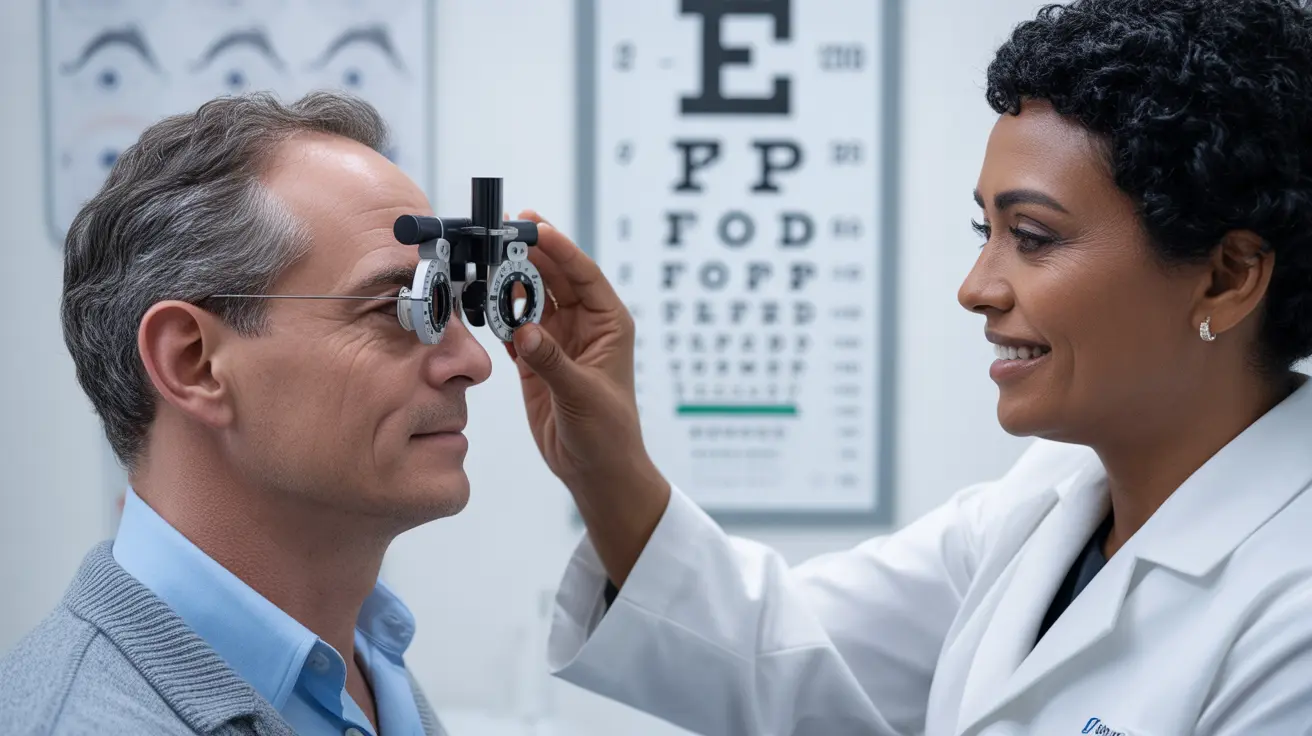A refraction eye exam is a crucial diagnostic procedure that helps eye care professionals determine your exact prescription for glasses or contact lenses. This comprehensive vision test measures how light bends as it passes through your cornea and lens, revealing any refractive errors that may be affecting your vision clarity.
Whether you're experiencing blurry vision or simply due for a routine check-up, understanding what happens during a refraction eye exam can help you feel more prepared and confident about your eye care journey.
What Happens During a Refraction Eye Exam
During a refraction test, your eye doctor uses specialized equipment to measure how your eyes focus light. The main instrument used is called a phoropter, which contains multiple lenses of different strengths. As you look through these lenses, your doctor will ask you to compare options and indicate which provides the clearest vision.
The Step-by-Step Process
The examination typically follows these stages:
- Initial visual acuity test using a standard eye chart
- Preliminary assessment with an auto-refractor
- Manual refraction using the phoropter
- Fine-tuning of prescription through comparative lens choices
- Assessment of both eyes together for proper balance
Testing Different Vision Aspects
Your eye care professional will evaluate several components of your vision:
- Nearsightedness (myopia)
- Farsightedness (hyperopia)
- Astigmatism
- Presbyopia (age-related vision changes)
The Importance of Regular Refraction Testing
Regular refraction eye exams are essential for maintaining optimal vision health. These tests can:
- Detect vision changes early
- Prevent eye strain and headaches
- Ensure proper prescription updates
- Monitor overall eye health
- Support daily activities requiring clear vision
When to Schedule Your Exam
Most eye care professionals recommend having a refraction eye exam:
- Every 1-2 years for adults with normal vision
- Annually for those with existing vision correction
- More frequently for individuals with specific eye conditions
- Any time you notice changes in your vision
Preparing for Your Refraction Eye Exam
Proper preparation can help ensure accurate results during your examination. Consider these important steps:
- Bring your current glasses or contact lenses
- Have your eye health history ready
- Plan for temporary vision blur after dilation
- Allow approximately 20-30 minutes for the complete test
- Consider bringing someone to drive you home if your eyes will be dilated
Frequently Asked Questions
What is a refraction eye exam and why is it important for vision correction?
A refraction eye exam is a vision test that measures how your eyes bend light to focus images. It's essential for determining the exact prescription needed for glasses or contact lenses to correct vision problems like nearsightedness, farsightedness, and astigmatism.
How is a refraction eye exam performed and what should I expect during the test?
The exam is performed using a phoropter, where you'll look through different lenses while reading an eye chart. Your doctor will ask you to compare lens options, typically asking "Which is better, 1 or 2?" to determine your optimal prescription.
How long does a refraction eye exam usually take?
A typical refraction eye exam takes about 20-30 minutes to complete, though this may vary depending on individual needs and whether other tests are performed during the same visit.
Can a refraction eye exam detect other eye health problems besides the need for glasses?
While a refraction exam primarily determines vision correction needs, it can help identify potential vision problems that may indicate other eye health issues requiring further examination.
Do I need to prepare or remove my contact lenses before a refraction eye exam?
Yes, if you wear contact lenses, you should remove them before the exam. Your doctor may also request that you stop wearing contacts for a period before the exam, typically 24 hours for soft lenses and longer for rigid lenses.




